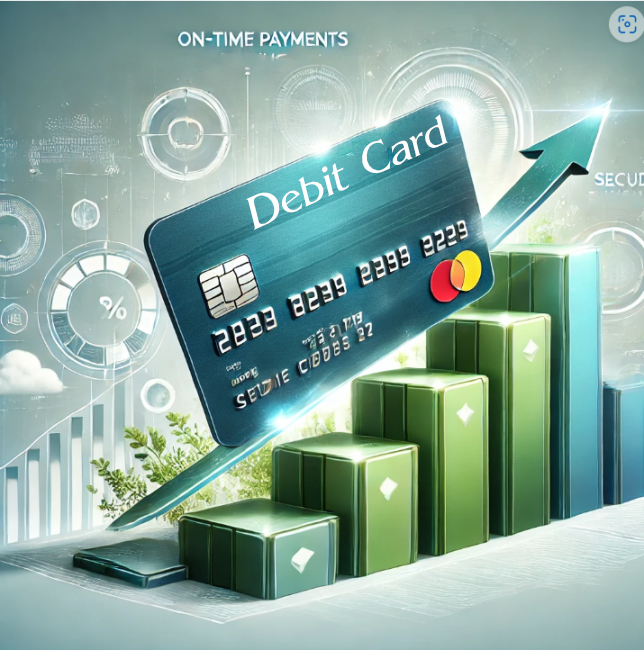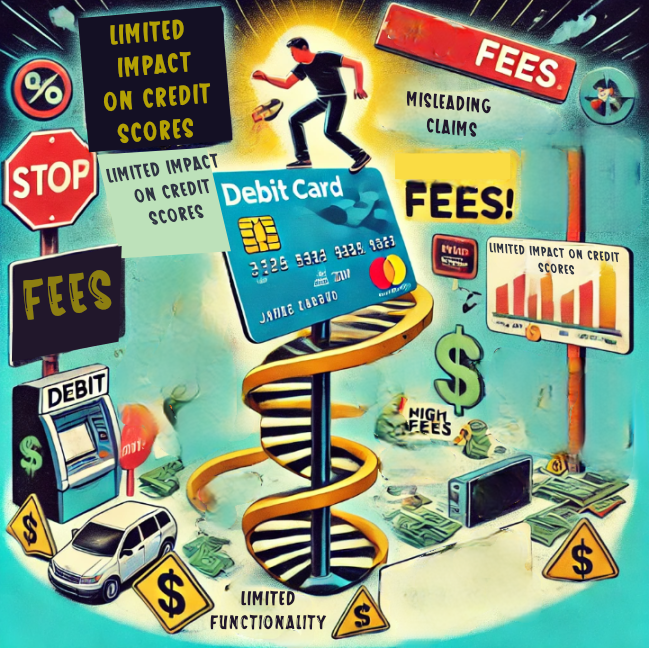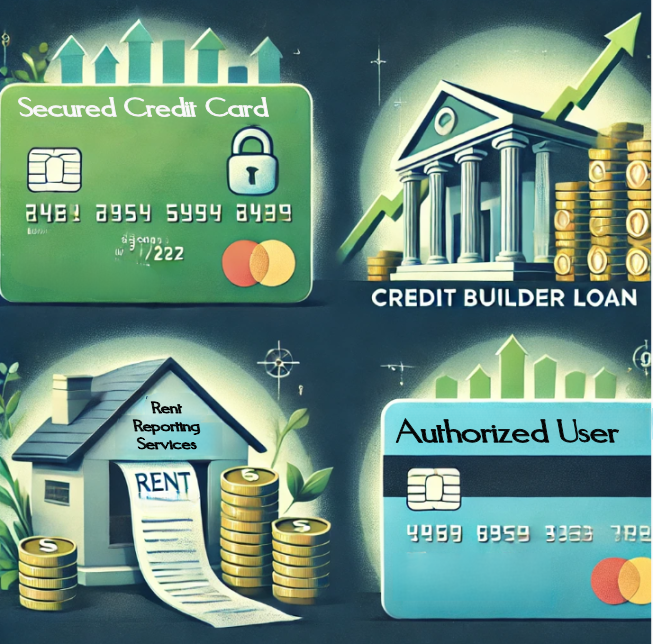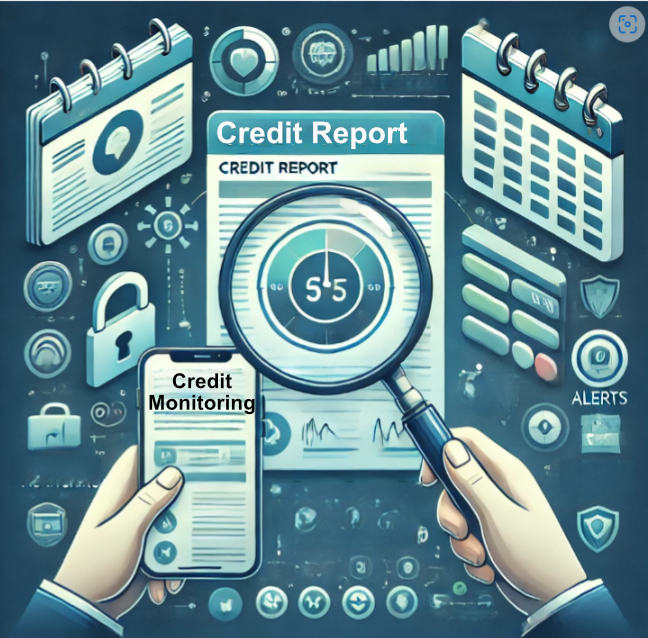Building Credit with a Debit Card
The majority of the links on our website are affiliate links. This means that if you click on the link and make a purchase, we earn a small commission at no additional cost to you.

Can I build credit with a debit card? Building credit with debit cards isn’t possible in the traditional sense because debit card usage isn’t reported to credit bureaus. Unlike credit cards, debit cards are linked directly to your checking account and using them involves spending money you already have rather than borrowing money that you will need to repay. Now they have more tools to help build and rebuild credit.
Those who are trying to establish credit or rebuilding their credit may find it challenging to get approved for traditional credit cards. Debit cards that build credit can provide a steppingstone to establish a credit history without the risk of accumulating debt. It’s important to note, however, that traditional debit cards do not affect your credit score. The products marketed as debit cards that help build credit usually involve some form of credit activity.
How They Work?
Debit cards that build credit work through innovative features that mimic or involve some credit-like activities. These cards link to your existing bank account, or the debit card links to a secured line of credit. Where the individual puts down a security deposit that becomes the spending limit. At the end of each month, the card issuer totals up your transactions. They report these payments to one or more credit bureaus (typically Experian and Equifax, sometimes TransUnion).
The Pitfalls

It’s important to approach these products with caution and to consider more traditional and established methods of building credit. Because they are generally more transparent and effective. Debit cards that help build credit might sound appealing, but they come with certain pitfalls that users should be aware of:
- Limited Impact on Credit Scores: These cards may not have as significant an impact on your credit score as traditional credit-building tools like credit cards or loans.
- Fees: Some of these debit cards might come with high fees, including monthly service fees, enrollment fees, or other hidden charges. These costs can add up over time and might outweigh the benefits of any credit score improvements.
- Misleading Claims: There can be misleading marketing claims around the effectiveness of these products in building credit. It’s essential to thoroughly research and verify the claims made by these products to ensure they will actually contribute to your credit report in meaningful ways.
- Limited Functionality: Some debit cards cannot be used at ATM’s. This limits their utility for cash withdrawals compared to traditional debit cards.
- Dependency: Relying on a specialized product to build credit can prevent users from exploring more effective methods, such as secured credit cards, which are widely recognized and have a proven track record of building credit.
- Consumer Education: There may be a lack of clear information on how to use these products effectively. Users might not fully understand the terms and conditions or the specific ways these cards report to credit bureaus, leading to mismanagement or unrealistic expectations.
The benefits of Credit building credit cards
Benefits:
- Build credit without taking on debt.
- Eliminate risk of overspending.
- No credit check required
I want to point out that these tools are temporary, used as a means to attain traditional financial products to help you build a strong credit file. Such as unsecured credit cards, installment loans, home loans and mortgages. When it comes to a strong credit file, there are things that will boost your credit score, but they are not going to make a strong credit file. Paying your bill in full and on time is going to build a strong rating. In addition, keeping balances under 10%. Keeping low balances is not going to make a difference if your always late with payments. Paying your bill late will weaken what you’ve built. The longer the payment is late, the worst your rating will become.
When you sign a credit card agreement, you are basically giving your word that you are going to repay, what you borrow. If you do not pay the full amount, whatever the balance is you’ll pay interest on. In the eyes of the lender, when the full amount is not paid, flags begin to rise. Some lenders love it, because of the interest that gets applied to the balance. But the bottom line is, did you pay back all that you borrowed or not? Is your word good or is it meaningless?
Ways To Establish Credit

In order to build credit, you must pay back what you borrowed. In order pay back what you borrow, you need a lender to let you borrow. If you have no credit history or a bad credit history, it’s a challenge finding a lender. Credit scoring is about risk. A bad credit history is risky. No credit history is highly risky. The credit industry has no benefit of the doubt. As an example, if a creditor reports the current balance on a credit account, but doesn’t report the credit limit, credit scoring assumes the account is maxed out, when really the balance to credit limit ratio is 20%.
That is why having no credit history is worse than having bad credit. A bad credit history is not permanent, someone with bad credit can turn things around by paying on time and in full, if not full the full amount, at least paying the minimum. With no credit history, it is assumed that the individual will not pay the balance.
Capital One Platinum Secured Credit Card // No Annual Fee// 29.99% APR (variable)
Discover it Secured Credit Card//No Annual Fee//28.24% APR (variable)
So, there are tools that can be used to establish credit.
- Secured credit cards: Require a cash deposit as collateral. After a period of responsible use, usually 6 to 12 months, many secured credit card issuers may allow you to “graduate” to an unsecured credit card. This transition often comes with the return of your security deposit.
- Become an authorized user: This is the fastest way to establish credit. A parent will put their child on the credit account as an authorized user. The child receives a credit card with their name on it. They can make purchases, but they are not legally responsible for repaying the debt incurred on the account. The credit limit, the age of the account and payment history is transferred over to the child. When an authorized user is added to the account, the account’s history (both positive and negative) is typically reported to the credit bureaus under the authorized user’s name. The negative events will hurt both the primary and authorized user credit files,
- Credit-builder loans: Designed specifically to help build credit. These loans are not meant for immediate cash like traditional loans. The loan amount is placed into a secured savings account or certificate of deposit (CD) that you cannot access immediately. They require fixed monthly payments over a set period, which usually ranges from 6 to 24 months. Payments include both principal and interest. The lender reports your payment history to the credit bureaus. At the end of the loan term, the lender releases the funds to you. The amount you receive is the total of the loan minus any interest or fees.
- Report rent payments: There are services and platforms available that will report your rent payments to major credit bureaus (Equifax, Experian, and TransUnion). These services work by partnering with landlords or allowing tenants to sign up independently. On-time payments impact credit files positively and late payments impacts credit files negatively. Some rent reporting services charge a fee for reporting your rent payments, either to the tenant or the landlord. These fees can vary widely.
Monitoring Your Credit

Every year you are allowed 1 free credit report from each credit bureau, and they do not come with credit scores. You can order them from annualcreditreport.com. After that you will need to pay for additional reports.
- Use free credit monitoring services like CreditWise.
- Get free annual credit reports from AnnualCreditReport.com.
To get the most out of credit monitoring services, use the service to gauge the progression of your credit file. Which way does your credit score go? Is it moving up or down? Do not make the mistake and rely on free credit scores. Your real credit score is the one a mortgage broker receives. They use an industry specific FICO scoring model. There are unique aspects of mortgage lending that are taken into account when credit scores are calculated. It’s not as lenient as the FICO scoring model creditors use. Think of it this way, do you think that the criteria for approval of a credit card is going to be the same for $300,000 home loan? FICO’s is also not sharing their mathematical formulas for their scoring models.
The credit scores from free websites are not correct. Their credit reports may be correct, but if you’re going to order your credit reports why not use the free one you can get for free from the bureau’s. Then if you need additional reports, you can use the reports you can get from credit monitoring services. To be honest, if you order and review your free annual credit reports and look them over to make sure everything looks right, you don’t really need to look at your credit scores. If your report is good your credit score will also be good. Three free credit reports a year is fine.
.